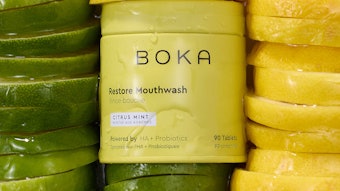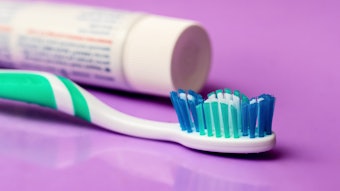The American Dental Association (ADA) has published a statement requesting that the US Food and Drug Administration (FDA) establish appropriate classifications for tooth-whitening chemicals. The ADA finds that the application of these whitening chemicals without the supervision of a dentist can harm teeth, gums and other tissues in the mouth. Specifically, the ADA is concerned for the application of tooth whiteners in non-dental settings.
"The latest tooth whitening trend is the availability of whitening treatments or kits in non-dental retail settings, such as mall kiosks, salons, spas and more recently, aboard passenger cruise ships," notes the ADA in its press release.
The ADA has advised patients to consult with their dentists to determine the most appropriate whitening treatment, particularly for those with tooth sensitivity, dental restorations, extremely dark stains and single dark teeth. Dark teeth reportedly may be caused by a dental problem that cannot be treated with whiteners.
The ADA highlights that most tooth whiteners are formulated with carbamide peroxide or hydrogen peroxide as the main active whiteners. Recently, however, tooth whiteners in the UK have been formulated with chlorine dioxide, of which the ADA questions its safety.
Presently, all extracoronal tooth bleaching products remain unclassified by the FDA. This includes all peroxide-based products used in the in-office, dentist-dispensed products for at-home use, OTC products and products used in non-dental settings. In the early 1990s, the FDA proposed regulating the peroxide-based bleaching materials as drugs and sent warning letters to manufacturers. However, after legal challenges, the FDA suspended attempts to classify the bleaching materials.
According to the ADA, the FDA has taken no further action to classify tooth bleaching products.
For more information on tooth whiteners, read C&T magazine's November In Sight, Tooth Whitening Without Sensitization.










